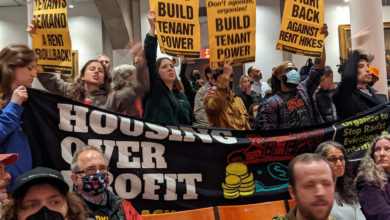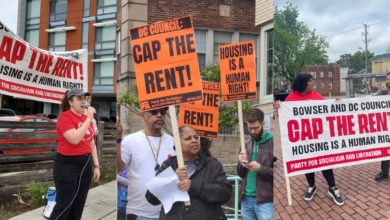The story of the housing crisis in the Treasure Valley has once again risen sharply in pitch, spurred on by the unremitting COVID-19 pandemic. The Treasure Valley – also known as the Boise Metropolitan Area – comprises nearly 40 percent of Idaho’s total population and is home to more than 730,000 people. Approximately 42 percent of them are renters. Now, these renters are facing an onslaught of evictions, housing shortages, and houselessness.
The Treasure Valley was already in a uniquely fervent housing crisis. It is one of the fastest-growing areas in the nation, and each year the housing inventory lags farther behind the booming demand. At the same time, real estate investors have been sinking their fangs into the valley’s hot market, crowding-out local homebuyers and keeping renters from ownership.
As a result of the steepening demand for rental units, profit-hungry landlords are able to be highly selective about tenants, and at what price. Monthly rent for all types of property in the valley are at an all-time high, continuing to rise through this historic pandemic. And though the cost of living here is lower than other metro areas, Idaho’s wages are among the lowest nationally, making rent a significant burden for working class tenants across the valley.
Risk factors for renters have grown exponentially during the time of the COVID-19 virus. The economic downturn that swept the area resulted in record high unemployment. Local organizations that are in place to support the renting and homeless populations have been overwhelmed by demand. Some report a tripling in call volume, and a growing number of families made homeless by the pandemic. The mayor of Boise, Lauren McLean, continually refuses to invoke her powers to stop evictions, despite demands and protests from many local organizations. She defers instead to the State of Idaho to take action, though the State has demonstrated similar apathy to the plight of renters in the Treasure Valley.
According to Household Pulse Survey Data, as many as 1 in 4 Idaho renters are now facing eviction as the pandemic presses on, and this number is expected to grow in coming weeks. The CARES Act protection that allowed people to receive enhanced unemployment benefits ended on July 31, and the moratorium in place for evictions involving properties covered by federally backed mortgages will end on August 23. With these protections expiring, the nation is anticipating a landslide of evictions, and Idaho is no exception.
The tight rental market in the Treasure Valley means that finding someplace to live after eviction is difficult, and the pandemic has only worsened these conditions. Apartment showings have been canceled, and many leasing offices for rental companies are completely closed. Treasure Valley renters face eviction with the knowledge that they will be hard-pressed to find another place to live. Local residents have resorted to seeking storage units for their belongings, unable to secure housing upon moving out.
The legal eviction process in Idaho has always been harsh on renters when compared to the statutes of other states in the region. Idaho is an expedited eviction state, and landlords are known to take advantage of the speedy proceedings the state allows for the eviction of tenants. Under Idaho law, landlords can begin the eviction process if a renter is just three days late on rent. Furthermore, in Idaho, an eviction filing becomes a permanent part of the tenant’s record, which lowers their credit and decimates their future housing prospects.
A piece of Idaho law, which has been violating the rights of tenants since 1996, was finally overturned this summer on July 20. Idaho Code section 6-311A states that a judge should determine the outcome of eviction proceedings without a jury trial. In early June, Idaho Legal Aid Services filed a lawsuit, arguing that tenants have a constitutional right to a jury trial in eviction proceedings. The Court ruled in their favor, finding the statute unconstitutional under the Idaho Constitution.
This marks a noteworthy victory in more ways than one. Requesting a jury trial can help shift the unbalanced power dynamic between landlords and tenants in the courtroom. Additionally, due to COVID-19, jury trials in civil court cases – including evictions – are on hold until October. While eviction filings will still appear on one’s record, evictions themselves can be effectively postponed for the duration of the summer. What’s important now is to communicate, to any Idahoan facing eviction, is that they must contact the housing rights hotline at Idaho Legal Aid to learn how to request a hearing. Hearings will not be granted without making a request.
As stresses on the tenant class intensify under COVID-19, solidarity is more important now than ever. The Treasure Valley is enduring a hot, dry summer while property managers and landlords snap at our heels, relentlessly increasing rent and eviction filings. This valley, rich in natural beauty, remains a ghastly demonstration of how the capitalist machine operates: profit over people, grinding human lives to grist without conscience. But, as we have seen, there are wrenches we can throw in the gears. Organizations and activists continue to fight for housing justice, and victories can be won. The time to stand up, together, is now.
Sign the petition – Stop Evictions and Foreclosures! Cancel the Rents! End Racist Police Terror!






